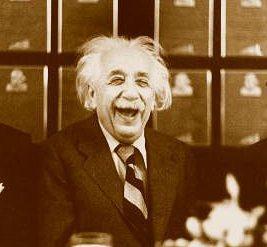 One of the many reasons I started this blog nearly five years ago was to engage both minds and hearts that my (and my colleagues’) scientific journal papers were failing to do. Of course have emotional attachment to our areas of expertise (I’ve never met a good scientist who wasn’t passionate about what they studied) – but as Alejandro Frid encourages – we just have to transmit that emotional component better to our fellow human beings.
One of the many reasons I started this blog nearly five years ago was to engage both minds and hearts that my (and my colleagues’) scientific journal papers were failing to do. Of course have emotional attachment to our areas of expertise (I’ve never met a good scientist who wasn’t passionate about what they studied) – but as Alejandro Frid encourages – we just have to transmit that emotional component better to our fellow human beings.
–
The title is not a joke about sensitive, New Age guys. I am quite serious about it. Though no academic superstar, I have been publishing in ecological and conservation journals for almost twenty years. I love the discipline. I’d hate to see it fail.
What I am talking about is this: ecologists read and write about ‘extinction’, ‘over-exploitation’, ‘climate change’ and so forth as a matter of routine. Yet at the same time, science journals are full of examples of how resources can be used more sustainably, of human behaviours that reduce the greenhouse gases that alter the climate and acidify the oceans, and of alternative economic models that value a healthy biosphere. So why do consumer apathy and political inertia still run the same old show?
I know, I know. Social scientists are working hard on this question (check out, for instance, just about any issue of Nature Climate Change). But what matters is not the rigorous answer that they might produce (we already know that it is 42 - Douglas Adams couldn’t be wrong); it is instead that most non-scientists probably don’t even care about the question.
So let me rephrase my title. If enough of the science needed to transition from the current economic system to one that values the atmosphere and ecosystems that sustain humanity already exists, ‘what would it take to generate the critical mass required for change?’ One can argue that we can always use more science, and I don’t disagree. But will more straight science change minds?
Dwelling on that question, I’ve come to believe that scientists are failing to influence a shift in the world because most of us live mainly in our heads. We usually appeal to other people’s intellect, which is a sure way to disengage most non-scientists. At the same time, we cannot take science out of the picture; we would risk having only beliefs, and these could be dismissed all too easily. Shifting society in any meaningful way, therefore, might require science and more. Science and emotion. Science and connection to the essence of the Earth.
Now that I have given you my version, let me be perfectly clear. The science that scientists do is exactly that. Where I believe that there is a lot more wiggle-room to go beyond science is in the human context that we might create when communicating the bigger picture to non-scientists. Of course, I am not the first to say this (see, for instance, Don’t Be Such A Scientist, by Randy Olson). And I invite the ConservationBytes.com community to expand on this discussion.
Oh, one more thing. I recently went out on a limb and initiated my own ‘science and emotion’ project. I invite you to check it out here. This is a work in progress, so it would be great if you can drop me a line and tell me what you think.
(see also Alejandro’s previous posts on CB.com: Who’s responsible for climate change? Not ecologists, right? and Conservation value of paddy wagon currency: civil disobedience by scientists)
-34.917731 138.603034
